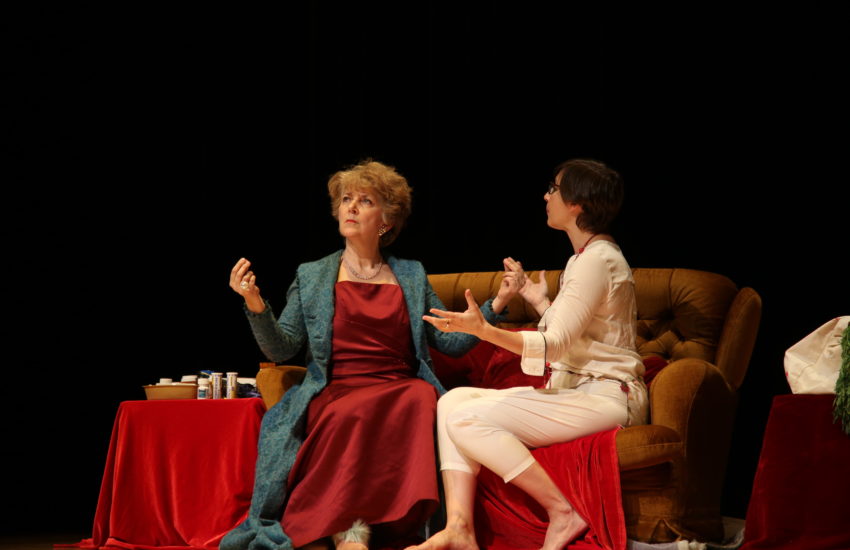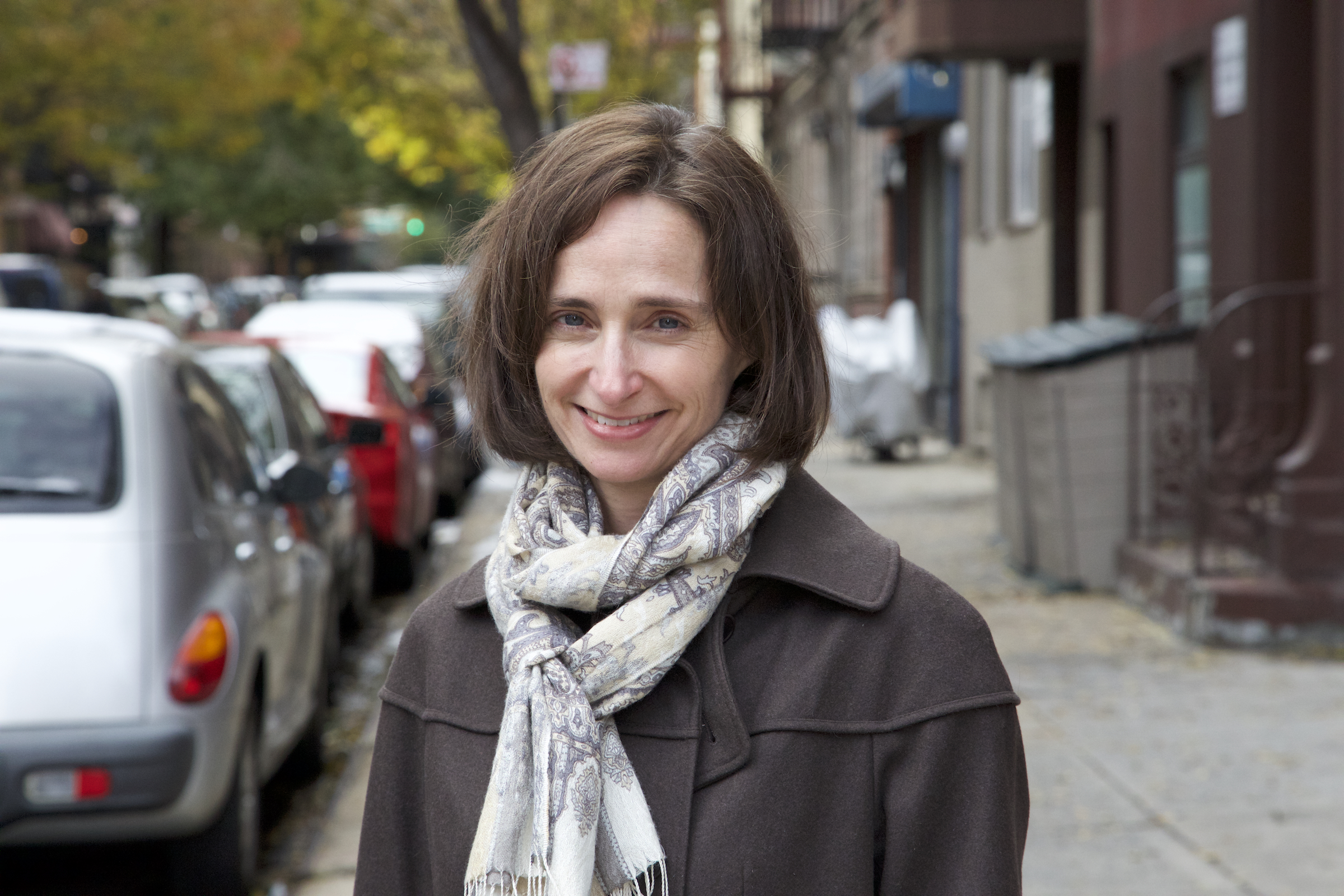The Lycée’s Première Scène – French Theater Festival was launched 20 years ago this February 1st and has become an annual event for thespians at French Lycées in the U.S. and Canada, and even France, as well as for students of French at New York City-area public and private schools. The Festival’s founders, Secondary teachers Nathalie Roussel and Frédéric Yvelin, who met on stage in 7th grade and reconnected at the Lycée, tell us all about the Festival, including what it’s meant to them and to the students and teachers, some 5000 strong, who have taken part over the years.
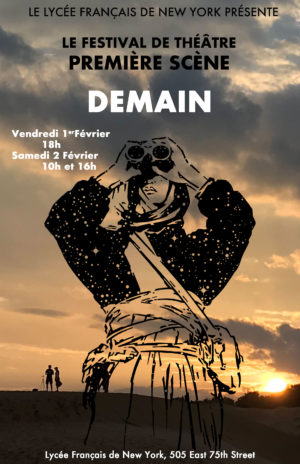 Q: What is Première Scène?
Q: What is Première Scène?
Première Scène is a celebration of French and Francophone theater and creativity, and also a place where adolescents find a space to explore their identity and to express themselves on stage. The basic premise of the event has not changed since it was founded 20 years ago. Students and teachers are invited to write or adapt and perform short plays of seven minutes or less in French based on a theme. All sets and costumes must fit in one suitcase!
Q: The Festival turns 20 this year. What do you think about that?
Like all new projects, when it started, we had no idea we’d be doing it 20 years later. But here we are 20 years older, a bit bigger than we were back then, with wisdom and wrinkles… The beauty of this festival is that the actors do not get any older, and therefore, the festival will always be young! Even as we have a little less energy, and it takes us a little longer to recuperate, we are amazed that the enthusiasm for this event has not subsided. We feel very proud and also amazed by how much it has grown. We have ten times the number of actors than we had 20 years ago.
Q: How did Première Scène get started?
The question may better be asked, “how has it lasted for this long?” Guislaine Hudson, who was head of school at the Lycée for just three years, was inspired to bring the festival here from San Francisco initially. We were both new to the Lycée, and she asked us if we wanted to take it on. Future administrations, including Mr. Theze, Mr. Lynch and now Mrs. Peverelli, have been big supporters of it. Over the years, it’s grown mostly by word of mouth. We’ve had schools from Marseilles, Sydney, Vancouver over the years. We’re getting publicity internationally, surely by our students who may relocate to new countries with their families, and teachers who also go on to work at other Lycées in the international system.
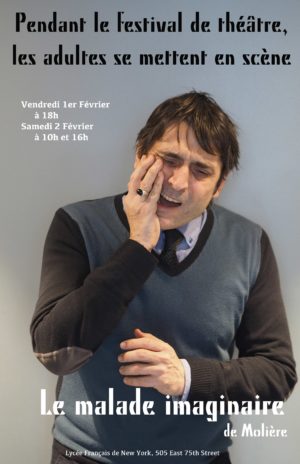 Q: Any surprises over the years?
Q: Any surprises over the years?
For us, the most important aspect of Première Scène is free expression of students, with, of course, guidance from their teachers. The plays give young people, especially adolescents, the opportunity to say things they wouldn’t usually say. When they are on stage, they are not themselves, and it frees them to say things. It’s an indirect way for them to tell their parents and their peers who they are.
During the first festival in 1998, a Lycée student, Isaline, wrote her own play, which addressed being gay. This was 20 years ago, and especially provocative for that time. While the jury deliberated, a few people came to us to say that they were shocked and wanted us to better control what the children create, and we said absolutely not. She ended up winning the prize for best play, best writer and best actor!
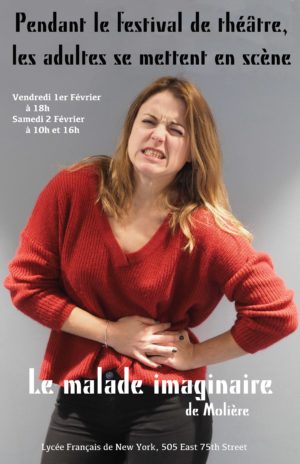 In 2013, students from the French Heritage Language Program (a public school program sponsored by French Cultural Services for students from francophone countries in Africa and the Caribbean), started coming to the Festival. They write their own plays and on themes that are very close to them, but not so familiar to the other performers–forced child marriage, exile, being a child soldier. Their participation is so important, as it confronts us all with another culture when they perform in such a genuine way.
In 2013, students from the French Heritage Language Program (a public school program sponsored by French Cultural Services for students from francophone countries in Africa and the Caribbean), started coming to the Festival. They write their own plays and on themes that are very close to them, but not so familiar to the other performers–forced child marriage, exile, being a child soldier. Their participation is so important, as it confronts us all with another culture when they perform in such a genuine way.
There are also our loyal participants. Both Browning School and UNIS here in New York City have been involved in the festival since the beginning and with the same teachers, Ida Kummer and Dominique Bernard. We are grateful to them. Each year, Dominique Bernard of Browning builds exercises in grammar, vocabulary, French expressions and songs in every play. His entire class is adapted around Première Scène, and that takes a tremendous amount of work, but it’s also a great way to engage students of French in the language.
Q: Tell us about his year’s festival.
This year’s theme is “demain”. The idea is to show that Première Scène has reached a milestone, but that there will be a tomorrow!
Jean Reno, the actor, is a special guest of honor. He’ll give a small speech before the prizes are awarded on Friday night, and be part of the jury. As the jury deliberates, members of our teachers and staff will perform an adaptation of Molière’s final play, the comedy Le Malade Imaginaire.
Before we forget! We need to thank loyal Lycée participants over the years, too–Marie-Odile Couture who designs our posters and takes pictures; Ian Colliety, Nathalie’s husband, who designs the logo every year and edits video (included the one here!). The APL offers a goûté during intermission on Saturday afternoon. And special thanks to the Cadahemark Foundation, and to Lycée alumni parent and Trustee Heidi de Bethmann, who has suppored the festival for 13 years now. Their funding has profesionalized the festival over the years, with beautiful awards and t-shirts.
We look forward to seing everyone there! Vivent les 30 ans !
Festival Premiere Scene
February 1 & 2, 2019
Reserve seats at these links:
Y10-Y12, Friday, February 1at 6pm
Y5-Y7, Saturday, February 2 at 10am
Y8, Y9, Saturday, February 2 at 4pm (with APL goûté)
Note: interview has been condensed and edited to fit format of this blog.
Watch some winning performances from past years here:
Browning 2018 – “Altitude,” which won Prix de l’interprétation Francophone
UNIS 2018 – Won a “Coup de coeur” award for costumes and script, written by their students
International Community High School – Part of French Heritage Language Program – Won “Coup de coeur” for best environmental message
About the Author :
Elisabeth King joined the Lycée team in November 2011 as the school’s first director of communications. A francophile at heart, Elisabeth spent her junior year of college in Paris, and held her first job at the French Trade Office here in New York. She brings to the Lycée over 15 years of experience in media and communications in non-profits, government, news and business. She was previously executive vice president and director of strategy at ABI, Inc., a boutique public relations agency, and she worked as associate editor on two books co-authored by Todd Brewster and the late ABC News anchor Peter Jennings.

